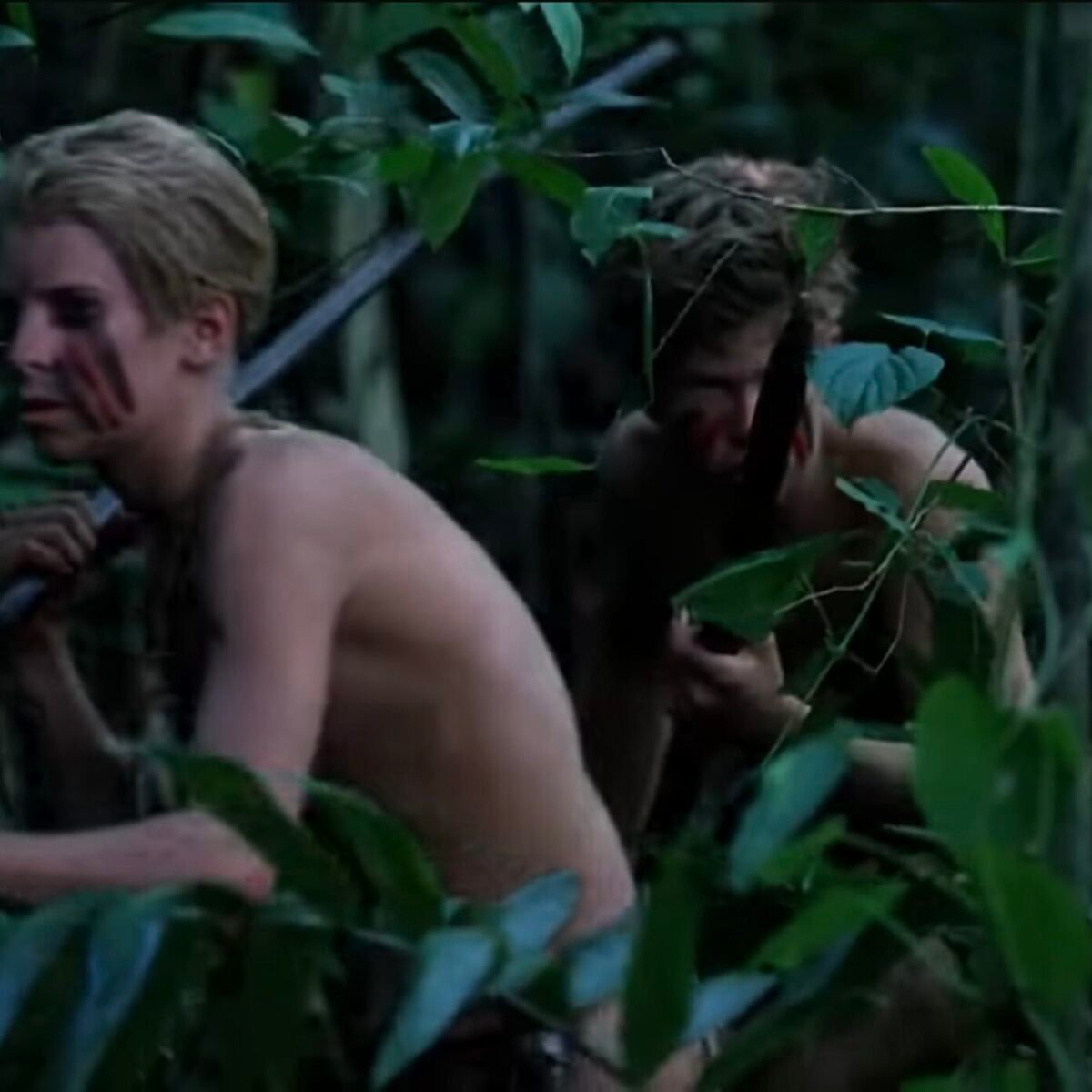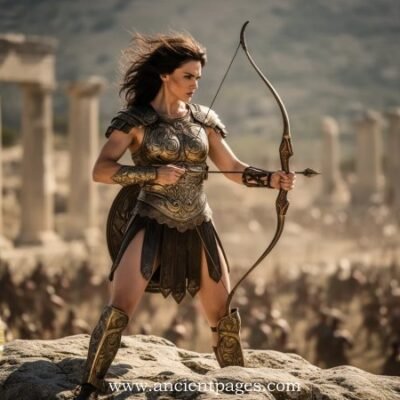With all the reboots, remakes, adaptations, and resurrections out there, it was just a matter of time before Lord of the Flies made its way to the forefront. William Golding’s 1954 classic is no stranger to film adaptations, with versions in 1963 and 1990 that remained more or less faithful to the source material.
However, Lord of the Flies is both simple in its thematic depictions and complicated, especially at a time of bloated budgets, intense fan scrutiny, and political messaging.
For every movie or TV show that honors the source material, often resulting in fan and critical praise, there are ten that take a chainsaw to the original classics before curb-stomping them for good measure.


On the bright side, Lord of the Flies is staying home. BBC commissioned it with Sony’s backing, and it will release on BBC iPlayer, BBC One, and Stan.
Adaptations are never easy, and it will be interesting to see whether BBC can pull off something that transcends the 1960s and 1990s film efforts.
Lord of the Flies’ Themes are Difficult for Kids to Act
There’s a darkness in every human being, whether we like to think so or not. Looking at ourselves in the mirror while brushing our teeth or shaving, there’s the makings of an aberration in there — something our closest loved ones wouldn’t recognize.
For the lion’s share of us, that inky, rotting obscurity remains chained and impotent, walled away behind societal norms, personal expectations, empathy, love, and an instinctive revulsion for violations of nature.
Most of us never have to experience that small step from safety and civilization to survival and desperation. Starvation, deprivation, and fear are capable of turning even the kindest among us into raving savages, abstracted from benevolence and integrity.


Reason versus savagery, order versus chaos — simple in concept, much harder in reality. This is especially true for a cast of young boys, some of whom have little to zero acting experience to fall back on.
Golding also makes it clear, through his many allegories, that he believes the savage, brutal side of humankind is a default setting, only repressed through force of will or conformation with societal norms.
Of course, that’s Golding’s opinion, and whether or not the upcoming show takes things that deep is anyone’s guess.
To a lesser degree, groupthink, war, loss of innocence, and desire for idol worship are concepts dealt with in Golding’s book. Some of these things are conveyable with little more than visual storytelling, while others will be a challenge for the young actors.
The Showrunners
Marc Muden will direct Lord of the Flies. He’s an eight-time BAFTA nominee, winning three. However, success in the eyes of the British Academy of Film doesn’t always translate to stellar fan and critic approval.


His last five projects include The Sympathizer, Help, The Third Day: Autumn, The Third Day, and Secret Autumn. Only two of those reached a 7.6 IMDB score, with the remaining three receiving a 6.8, 6.4, and 5.6.
Those same shows did better with average critics and fans on Rotten Tomatoes, with some exceptions. Jack Thorne wrote the screenplay for Lord of the Flies and is a relatively well-received scriptwriter in Britain and the United States.
However, if you’ve watched any shows based on his screenplays, such as His Dark Materials and Shameless, you’ll notice the characters do a lot of talking, much of which amounts to very little in value.
He actively shares his political opinions outside of his work, and despite his previously excellent working relationship with J.K. Rowling, the two have recently had a falling out over their political and personal opinions.
Fortunately, Jack is known for not explicitly inserting his politics into his screenplays.


It’s nearly impossible not to layer your written works with some level of personal opinion. Still, the divisive nature of the world today simply won’t tolerate much, regardless of which side of the aisle fans stand on.
The Success of Yellowjackets Bodes Well for Lord of the Flies
The Society of Snow, Alive, and Yellowjackets are all popular renditions of the survival theme, but Lord of the Flies precedes them all.
Of course, Alive and Society of Snow are based on a true story, but there’s little doubt that Yellowjackets took the best of Lord of the Flies and Alive, merged them, and manufactured a highly popular series.
Long before a group of cheerleaders crash-landed somewhere in the Alaskan wilderness, a group of preadolescent boys fleeing the ravages of war crash-landed on a lone, abandoned island.
In some ways, Yellowjackets goes darker than its predecessor, but the savage brutality of Lord of the Flies is no laughing matter.


William Golding’s story doesn’t deserve the delicate sensibilities of a PG or PG-13 rating.
Yellowjackets‘ existence, despite its place on the timeline of creative events, paves the way for a brutal and aggressive tale that’s true to Golding’s vision.
After all, this is not a tale of happiness. There is no ending where everyone sails into the sunset with smiles on their faces. Blood, beatings, murder, terror, rage, and savagery are par for the course.
In the end, the book leaves us to our own creative devices, imagining the thunderstruck thoughts and feelings of the naval officer who finally discovers them, along with a horrific sense of irony.
Only then does the savagery of their ordeal and choices find their revitalized consciences.
Four Episodes Versus 256-Pages
This is actually perfect. Four episodes should be more than enough to cover a fairly short book of only 256 pages.


A 10-episode or even a 6-episode season is too much, ultimately requiring a lot of filler content to keep it rolling.
Since Jack Thorne is known for senseless, long-winded dialogue at times, a 4-episode stretch should keep things snappy and the plot moving along at a steady pace.
At the same time, it’s not too short, allowing the showrunners time to cover even the more subtle nuances of the darkening nature that threatens to rise up in each of the characters.
Each episode focuses on the viewpoint of one of the four primary characters in the book: Ralph, Jack, Piggy, and Simon.
Hans Zimmer is also on board, teaming up with Kara Talve. If anyone can bring a sense of dread, terror, and violence to a show, it’s Zimmer.


It’s rare that a four-episode season attracts much joy and excitement in fans, but this is one of those exceptions to the rule.
Full Support from Golding’s Family
Another thing The Lord of the Flies and BBC have going for them is the full backing and support of William Golding’s family.
Sure, this isn’t always indicative that a show will be a runaway success. But it’s highly doubtful that Golding’s family would let someone like Tommy Wiseau (The Room) run off to tell the classic tale concocted by William Golding.
The fact that they are fully supportive and behind the project bodes well for the series’ future and quality. Hopefully, Jack Thorne and Marc Muden will justify their support and make William Golding proud.


Ultimately, it’s a story worth telling again and again, for it is applicable in every way. If there were only three people left on the entire planet, two would ostracize the third.
Is it in our nature, or is it a choice predicated on survival? Let us know in the comments whether or not you’re excited for Lord of the Flies to return to the screen!





